Discus Fish Keeping Tips, Guides & Care Sheet for Beginners
Knowing more about Discus Keeping will help you keep your discus healthy and happy. Success in maintaining the health of your Discus Fish will provide for greater enjoyment. Below are some simple tips to keep a healthy Discus.
Discus Keeping Tips for Beginners
Beginners are more subject to the risks of the keeping discus fish as they have a lowest practical experience on this beautiful sensitive fish. Here is some basic tips on how to keep discus healthy and active.
BUY HEALTHY DISCUS
Choosing and buying healthy and high quality discus is the first and most important part of Keeping Discus Fish. Never buy Discus from aquarium stores and/or tanks that have any obvious sick discus fish. Unhealthy discus often hide or are dark in color. You also must check the Discus for signs like hanging white string of feces, hole in the head, and heavy breathing. To make a good selection read selecting discus fish article.
QUARANTINE
Newly bought discus are prone to the Discus Black Disease or Discus Plague. There are also many other diseases such as internal and external parasites, fungal and bacterial infections, and etc. A plague attack is obvious when most of the Discus Fish in the aquarium stack together or rub against aquarium objects, or when their bodies turn black and the eyes become cloudy. If you bought your discus fish from a trusted source and there are no other fish in your aquarium tank, then you may place the new discus directly into the new aquarium. If you already have discus or any other fish in your aquarium, you have to quarantine the new discus in a separate tank for at least 2 months. Quarantine tank should be especially set up for Quarantining purpose and located in a separate room, as it is a must in Discus Keeping. For more information about quarantining discus fish read How To Quarantine Discus Fish article.
TANK
A bare bottom and large enough tank is a good choice to start Discus Keeping. Bare bottom aquariums are easier to control water parameters and diseases, helping you to have healthier discus fish. A healthy discus grows faster than what you might expect. So you will need at least a 230 Litter(60 gallon) tank with a minimum of 60 cm in height. Discus prefer deeper tanks so more depth will help discus to have less stress and to grow faster.
WATER CONDITION
Keeping discus fish can be made easy by preparing an excellent water quality. They need a toxin free, soft, and acidic water. To get the best possible result, you need to know a little bit about water chemistry. Toxins such as ammonia, nitrite, nitrate, phosphate, and also tap water chlorine and chloramine are very toxic for discus fish. Discus are also highly sensitive to a couple more water parameters or properties. Three properties: pH, gH or General Hardness, and kH or Carbonate Hardness. pH is a measure of how acidic/basic aquarium water is. The range goes from 0 – 14, with 7 being neutral. pHs of less than 7 indicate acidity, whereas a pH of greater than 7 indicates a base or alkalinity. In nature, Wild discus are living in the “black water” rivers of the Amazon River system with a soft and acidic water. Keep water pH between 6.8 and 7.5 and be careful about fluctuating pH in your discus tank. Stability is the most important factor in regard to pH. Water hardness is a measure of the dissolved mineral content of water. There are two types: the general hardness (GH) and carbonate hardness (KH). When keeping discus fish, the GH and the KH of aquarium water should match their natural habitat. A KH of 3-4 and GH of 4-5 can be great for Discus. I highly recommend you to read Discus Water article for a happy and healthy discus in your tank.
DIET
Another important part of Discus Keeping is Feeding Discus Fish. Like many central and South American cichlids, discus are omnivores and their diet varies from live insects and worms to algae and plants such as spirulina in the wild. Many people believe that live foods like blood worms, artemia, tubifex, and etc. are the best choices for Discus but bare this in mind, there are always parasite and disease risks with live food. So try to feed your discus with live food only if it is necessary to increase fish appetite. However, I recommend you to reduce the risk of parasites and disease by not feeding discus with live foods. Discus need a balanced diet consisting of beef heart mix and granules. For more information about diet, read the Discus Feeding article.
HOW TO KEEP DISCUS FISH?
There are more things like Water Changes and even proper Lighting that can make Discus Keeping easier than you think.

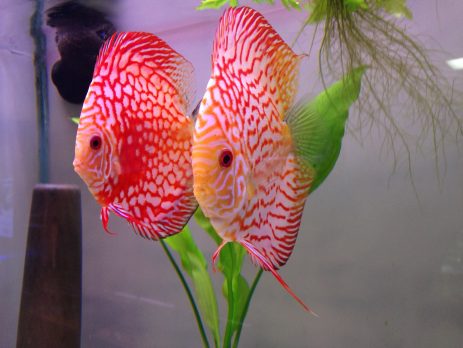
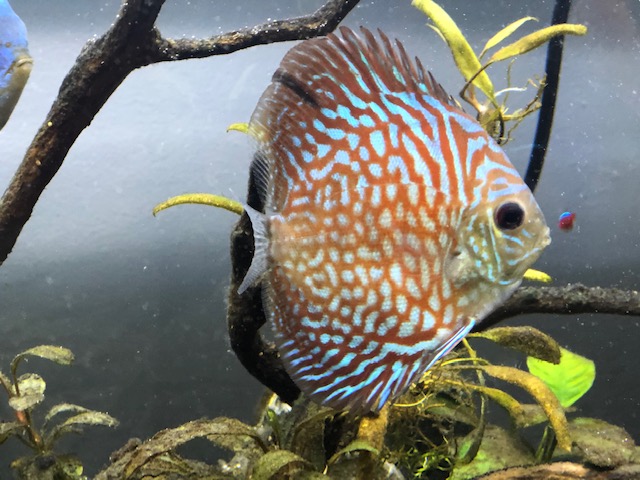
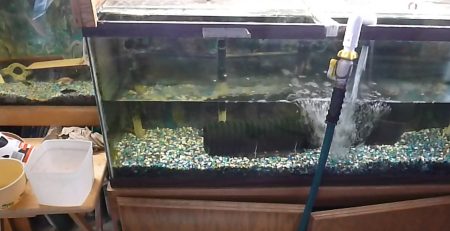
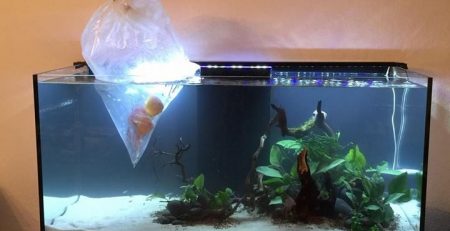
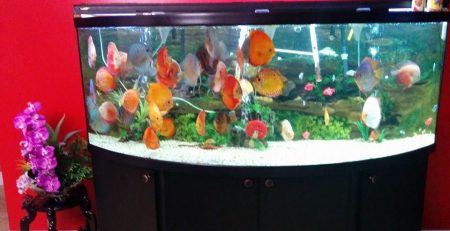
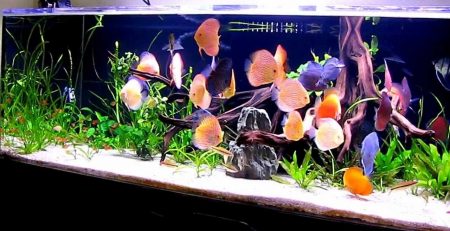
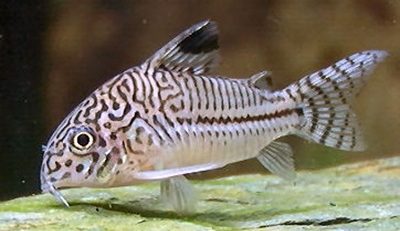
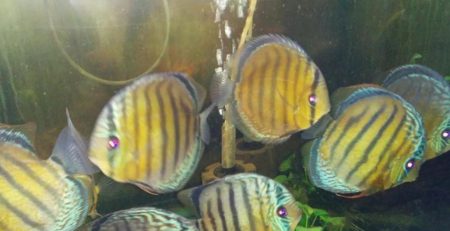
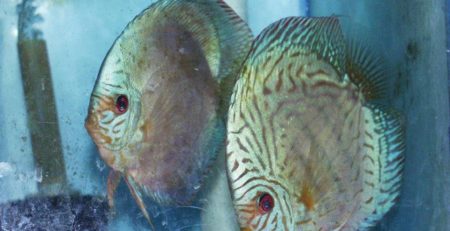
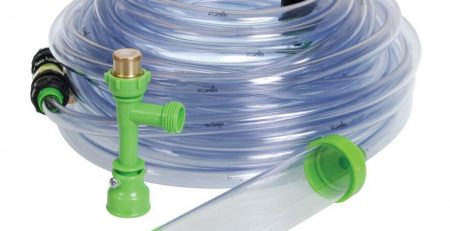
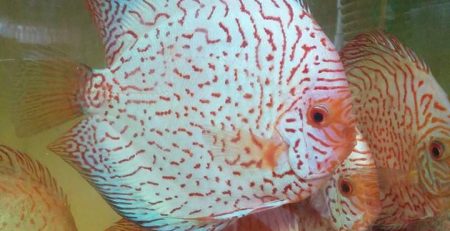
Leave a Reply
You must be logged in to post a comment.